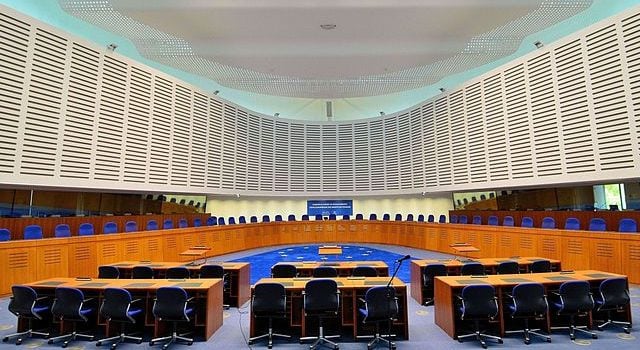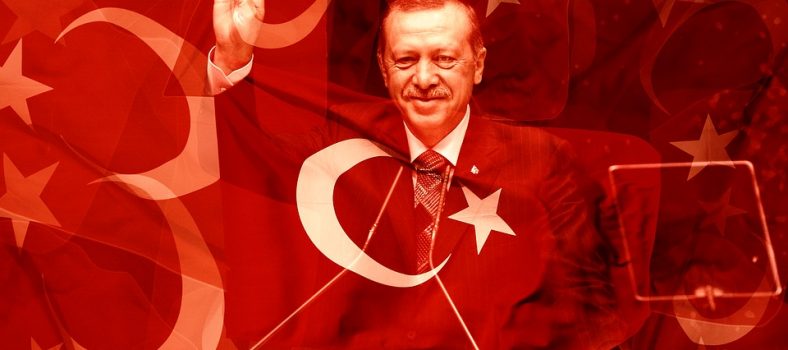What is in a word?
Words are curious little things. They’ve always fascinated me with their ability to preserve thoughts, convey ideas, and spark emotions. It is wondrous, really, the way that through so many different perceptions and possible interpretations, we still manage to generally agree on what words mean.
This is why I find it remarkable the way that Islamic sources manage to get away with using words so inappropriately. This week, the CEMB forum released an article titled Is it “moderate” to hate gays and women? in which the homophobic views of a popular, Saudi-taught Muslim preacher were exposed. Now, the word “moderate” means something. It means something that most people understand without having to refer to a dictionary or thesaurus. Whatever your personal feelings about the matter may be, you must agree that considering gays to be “filthy” and “worse than animals” is simply not a moderate position. Call it what you will, but it is not moderate.
And this is only one example of Islamic sources laying claim to a word or phrase that they simply do not deserve to use.
Let’s look at another example. Muslims often boast that the Qur’an is “unchanged” and “free from contradiction.” Again, these words mean something. I don’t have to explain to you what they mean. Yet, when we study the history of Qur’anic revelations, we find that there are documented instances of changes, erasures, and amendments to the book. There were verses that were recited at the time of Muhammad that are no longer recited, like the verse of stoning, and there are many more verses whose rulings have been superseded by later verses through a process known as naskh, or abrogation. I don’t argue that Islamic literature does not give in-depth and understandable reasons for these instances of abrogation, but none of them can make the words “unchanged” and “free from contradiction” hold true for the Qur’an. Those words mean something, and what they mean simply can not be used to describe the Qur’an.
Another often misused word in Islamic sources is the word “equality” as it relates to all human beings. This one is particularly curious to me because the Qur’an never claims that human beings are equal. Instead, the Qur’an is quite clear in its assertion that women are subordinate to men. Here is verse 34 of chapter 4. Read it for yourself. Does it describe a relationship of equality?
“Men are in charge of women by [right of] what Allah has given one over the other and what they spend [for maintenance] from their wealth. So righteous women are devoutly obedient, guarding in [the husband’s] absence what Allah would have them guard. But those [wives] from whom you fear arrogance – [first] advise them; [then if they persist], forsake them in bed; and [finally], strike them. But if they obey you [once more], seek no means against them. Indeed, Allah is ever Exalted and Grand.”
What is more, the Qur’an actively recognizes the institution of slavery, making comparisons between the master-slave relationship and the relationship of God and his creation. Here is verse verse 28 of Surah 30:
“He does propound to you a similitude from your own (experience): do ye have partners among those (slaves) whom your right hands possess, to share as equals in the wealth We have bestowed on you? Do ye fear them as ye fear each other? Thus do we explain the Signs in detail to a people that understand.”
Again, call these descriptions what you will, but they simply do not promote the idea of human equality. Unless we change the meaning of the word equality, we don’t get to use it here. Sorry.
But perhaps the most preposterous example of misused words in Islamic literature has to do with the nature of Allah himself. Allah is referred to as Ar-Rahman, or The Most Merciful. Often times, Muslims supplicate unto him using the grand title “The Most Merciful of Those Who Show Mercy.” The superlatives and capital letters matter here, as the Arabic title describes a being that is exceedingly and almost unnecessarily overflowing with mercy to the point that mercy can define his entire existence. Again, I don’t have to explain to you what it means to be merciful. Any conjuring of the qualities of mercy must, however, exclude the infliction of pain through torture upon inferior, sentient beings. Yet, the Qur’an is quite literally filled with descriptions of how Allah will subject unbelievers and sinners to the most grotesque scenes of torment in hell. Call it what you will, but this is simply not merciful. No amount of rhetoric can ever make it so.
Some have argued that such a sentence is a just punishment for the criminals of the world. Implementing justice and showing mercy, however, often stand in mutual exclusion. You don’t get to claim both.
Further, when we consider that shirk, or worshiping other than Allah, and kufr, or disbelieving in Allah, are the biggest “crimes” for which most human beings will be banished eternally to scorching flames and raging fires, we find that they are not crimes at all. There really is no victim. The Qur’an repeatedly asserts that Allah does not need our worship and that he is not harmed by our disbelief. Therefore, and according to Islamic literature itself, Allah will torture people for actions in which no harm at all had been inflicted upon anyone. This is neither just nor merciful. Given that Allah will have the option to not torture these people, but will instead choose to torture them eternally, he is disqualified from holding the title of Most Merciful.
It is understandable why Islamic sources would want to use positive descriptors and pleasant words to illustrate the religion. Words like “mercy,” “peace,” “equality,” and “moderation,” all sound nice and imply an ideology that can exist in harmony with other views and creeds. But torture by any other name is still torture. Bigotry and discrimination glossed over with terms like “moderation” and “morality” are still bigotry and discrimination. Sexism and misogyny hiding behind words like “equality” and “modesty” are still sexism and misogyny.
It is time that Islam moves beyond the mere use of nice words and towards the implementation of the values these words actually carry.




